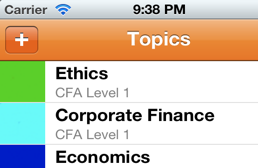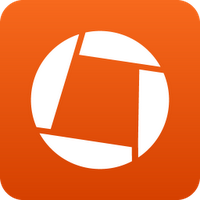There are several kinds of apps that can assist you with your learning and help you to develop effective learning habits. Below are 21 recommended apps in 7 categories, and suggestions on how to exploit them.
Many are free to download, but for those which are not, e.g. iStudiezPro, there is usually a free version with restricted functionality. You can experiment with the free version to see whether you like the app enough to invest in the full version. Actually, there are hundreds of such apps on iTunes and Google Play, so why not try others, too.
When evaluating an app, one thing to take note of is its integration with other software and hardware. For instance, Evernote and StudyBlue accounts can be connected, making it easy to create revision flashcards based on notes that you have taken. Mindjet files sync from your smartphone or tablet to your desktop computer via Dropbox.
It is also worthwhile exploring the user guides, video tutorials and case studies that makers of the apps often provide. These can help you realize the full potential of the apps and consider alternative ways to use them.
Study planner apps
Using this kind of app can help get you into the habit of managing your time effectively. Besides keeping track of lectures and tutorials, study planner apps allow you to organize study tasks, assignments and projects according to course schedules, and to set your study priorities. These apps can also provide timely reminders to complete tasks and keep a record of your course grades.
- IStudyPlan (Android, iPhone)
- iStudiezPro (Mac, Android, Windows)
- My Study Life (Mac, iPad, iPhone, Android, Windows)



Flashcard apps
These apps can be powerful revision aids. After identifying key terminology in your courses, you can create flashcards for important concepts and later be tested on your retention through a variety of quizzes. Progress is tracked and incorrect answers will be retested. Besides your own flashcards, you can browse and use millions of flashcards made by other learners.
- StudyBlue (iPad, iPhone, Android, Windows, Blackberry)
- Quizlet (iPad, iPhone, Android, Windows)
- gFlash+ (iPad, iPhone, Android, Windows, Blackberry)



Dictionary apps
Dictionary apps contain a wealth of information to assist you with academic reading and writing. Besides checking the meanings of words, you can see example sentences and find out common collocations. The thesaurus component in the apps can help you select precisely the right words for written assignments, and hearing the pronunciation of words can assist you with academic listening and speaking.
- Dictionary.com (Mac, iPad, iPhone, Android, Windows)
- Merriam-Webster (iPad, iPhone, Android, Windows, Blackberry)
- WordWeb Dictionary (iPad, iPhone, Android, Windows, Blackberry, Chrome)



Mind mapping apps
You can utilize these apps in a number of ways. For instance, mind maps are great tools to capture and organize ideas for assignments and projects. They may also be used to rework lecture notes into a more visual format. Some learners employ mind maps as revision aids. These apps work very well on tablets, and the mind maps may be co-created online.
- Freemind (iPad, iPhone, Android, Windows)
- Mindjet (iPad, iPhone, Android, Windows)
- iMindMapHD (Mac, iPad, iPhone, Android, Windows)



Bibliography apps
For higher education students, these apps can speed up the process of generating citations and compiling reference lists. With them you can scan or capture metadata and then they will automatically generate references in several styles, e.g. APA, MLA and Chicago. Whereas EasyBib is a free mobile app, Zotero and Mendeley are extensions for web browsers such as Firefox and Chrome.
- EasyBib (iPad, iPhone, Android, Windows)
- Zotero (Chrome, Safari, IE, Firefox, iPad/iPhone [Zotpad])
- Mendeley (Any Web browser, Mac, iPad, iPhone,Windows phone, Kindle Fire)



Note-making apps
These powerful apps can do more for you than providing a convenient notepad. They enable you to collect information on an academic topic from anywhere into a single place. This information can be in many forms, e.g. images, text, web pages, audio/video clips. The information can then be edited, annotated, filed, and even shared with other students.
- Evernote (Mac, iPad, iPhone, Android, Windows, Safari, Chrome)
- OneNote (Mac, iPad, iPhone, Android, Windows, Kindle Fire)
- GoodReader (Mac, iPad, iPhone, Android, Windows, Kindle Fire)



Scanner Apps
This kind of app can boost efficiency when working with text in several ways. Many kinds of text can be scanned as JPEG or PDF files, including handwritten notes and text embedded in images. Once scanned, you have the options to straighten, crop and combine pages. Those with Optical Character Recognition (OCR) enable export of PDFs to Word, Excel or Text files. PDFs may also be shared or printed wirelessly.
- Genius Scan (iPad, iPhone, Android, Windows)
- Evernote (Mac, iPad, iPhone, Android, Windows, Safari, Chrome)
- CamScanner (iPad, iPhone, Android, Windows Phone 8)



I hope that you have found this list useful. If you discover better apps, or new categories of learning apps, or new ways to use them, I’m all ears…
Everything is very open with a very clear explanation of the challenges.
It was truly informative. Your site is very useful. Thanks for sharing!
LikeLike